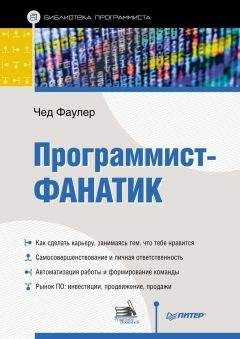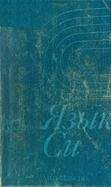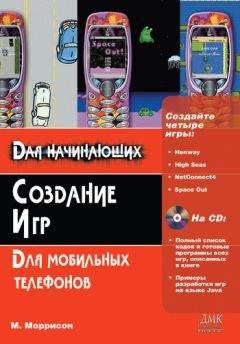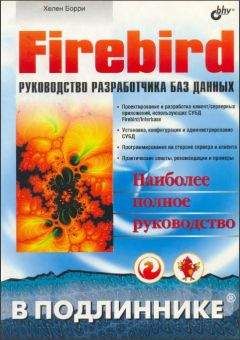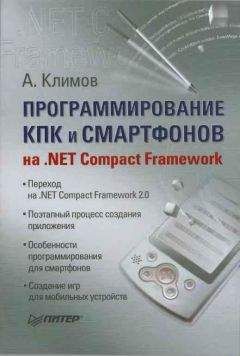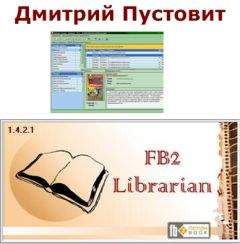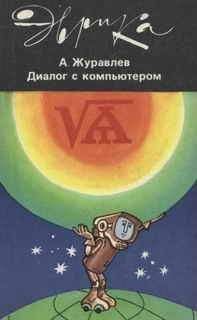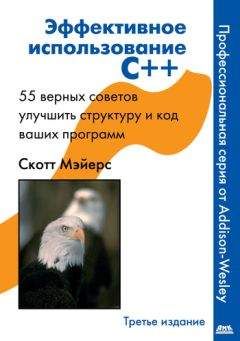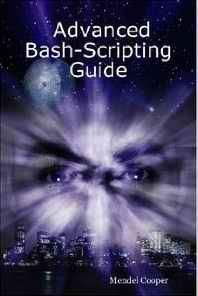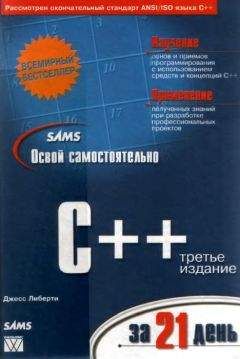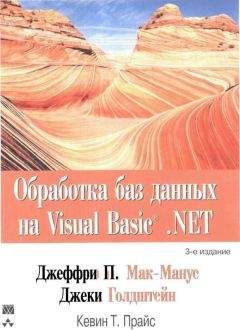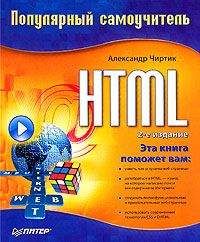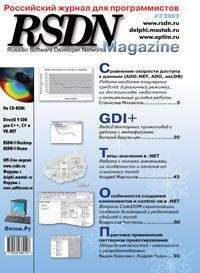Александр Степанов - РУКОВОДСТВО ПО СТАНДАРТНОЙ БИБЛИОТЕКЕ ШАБЛОНОВ (STL)
Скачивание начинается... Если скачивание не началось автоматически, пожалуйста нажмите на эту ссылку.
Жалоба
Напишите нам, и мы в срочном порядке примем меры.
Описание книги "РУКОВОДСТВО ПО СТАНДАРТНОЙ БИБЛИОТЕКЕ ШАБЛОНОВ (STL)"
Описание и краткое содержание "РУКОВОДСТВО ПО СТАНДАРТНОЙ БИБЛИОТЕКЕ ШАБЛОНОВ (STL)" читать бесплатно онлайн.
int main() {
pair ‹int*, int*› result;
result = mismatch(n1, n1 + 5, n2);
if (result.first == (n1 + 5) && result.second == (n2 + 5))
cout ‹‹ "n1 and n2 are the same" ‹‹ endl;
else cout ‹‹ "Mismatch at offset: " ‹‹ (result.first - n1) ‹‹ endl;
result = mismatch(n1, n1 + 5, n3);
if (result.first == (n1 + 5) && result.second == (n3 + 5))
cout ‹‹ "n1 and n3 are the same" ‹‹ endl;
else cout ‹‹ "Mismatch at offset: " ‹‹ (result.first - n1) ‹‹ endl;
return 0;
}
rndshuf2.cpp
#include ‹stl.h›
#include ‹stdlib.h›
#include ‹iostream.h›
class MyRandomGenerator {
public:
nsigned long operator()(unsigned long n_);
};
unsigned long MyRandomGenerator::operator()(unsigned long n_) {
return rand() % n_;
}
int main() {
vector‹int› v1(10);
iota(v1.begin(), v1.end(), 0);
ostream_iterator ‹int› iter(cout, " ");
copy(v1.begin(), v1.end(), iter);
cout ‹‹ endl;
MyRandomGenerator r;
for (int i = 0; i ‹ 3; i++) {
random_shuffle(v1.begin(), v1.end(), r);
copy(v1.begin(), v1.end(), iter);
cout ‹‹ endl;
}
return 0;
}
merge2.cpp
#include ‹stl.h›
#include ‹iostream.h›
int main() {
vector‹int› v1(5);
vector‹int› v2(v1.size());
for (int i = 0; i ‹ v1.size(); i++) {
v1[i] = 10 - i;
v2[i] = 7 - i;
}
vector‹int› result(v1.size() + v2.size());
merge(v1.begin(), v1.end(), v2.begin(), v2.end(), result.begin(), greater‹int›());
ostream_iterator ‹int› iter(cout, " ");
copy(v1.begin(), v1.end(), iter);
cout ‹‹ endl;
copy(v2.begin(), v2.end(), iter);
cout ‹‹ endl;
copy(result.begin(), result.end(), iter);
cout ‹‹ endl;
return 0;
}
adjfind1.cpp
#include ‹stl.h›
#include ‹iostream.h›
int main() {
typedef vector‹int› IntVector;
IntVector v(10);
for (int i = 0; i ‹ v.size(); i++) v[i] = i;
IntVector::iterator location;
location = adjacent_find(v.begin(), v.end());
if (location != v.end()) cout ‹‹ "Found adjacent pair of: " ‹‹ *location ‹‹ endl;
else cout ‹‹ "No adjacent pairs" ‹‹ endl;
v[6] = 7;
location = adjacent_find(v.begin(), v.end());
if (location!= v.end()) cout ‹‹ "Found adjacent pair of: " ‹‹ *location ‹‹ endl;
else cout ‹‹ "No adjacent pairs" ‹‹ endl;
return 0;
}
vec7.cpp
#include ‹iostream.h›
#include ‹stl.h›
int array1[] = {1, 4, 25};
int array2[] = {9, 16};
int main() {
vector‹int› v(array1, array1 + 3);
v.insert(v.begin(), 0); // Insert before first element.
v.insert(v.end(), 36); // Insert after last element.
for (int i = 0; i ‹ v.size(); i++) cout ‹‹ "v[" ‹‹ i ‹‹ "] = " ‹‹ v[i] ‹‹ endl;
cout ‹‹ endl;
// Insert contents of array2 before fourth element.
v.insert(v.begin() + 3, array2, array2 + 2);
for (i = 0; i ‹ v.size(); i++)
cout ‹‹ "v[" ‹‹ i ‹‹ "] = " ‹‹ v[i] ‹‹ endl;
cout ‹‹ endl;
return 0;
}
bcompos1.cpp
#include ‹iostream.h›
#include ‹stl.h›
struct odd: public unary_function‹int, bool› {
odd() {}
bool operator() (int n_) const {return (n_ % 2) - 1;}
};
struct positive: public unary_function‹int, bool› {
positive() {}
bool operator() (int n_) const {return n_ ›= 0;}
};
int array[6] = {-2, -1, 0, 1, 2, 3};
int main() {
binary_compose‹logical_and‹bool›, odd, positive› b(logical_and‹bool›(), odd(), positive());
int* p = find_if(array, array + 6, b);
if (p != array + 6) cout ‹‹ *p ‹‹ " is odd and positive" ‹‹ endl;
return 0;
}
setsymd2.cpp
#include ‹stl.h›
#include ‹iostream.h›
#include ‹string.h›
char* word1 = "ABCDEFGHIJKLMNO";
char* word2 = "LMNOPQRSTUVWXYZ";
int main() {
ostream_iterator‹char› iter(cout, " ");
cout ‹‹ "word1: ";
copy(word1, word1 + ::strlen(word1), iter);
cout ‹‹ "\nword2: ";
copy(word2, word2 + ::strlen(word2), iter);
cout ‹‹ endl;
set_symmetric_difference(word1, word1 + ::strlen(word1), word2, word2 + ::strlen(word2), iter, less‹char›());
cout ‹‹ endl;
return 0;
}
search0.cpp
#include ‹stl.h›
#include ‹iostream.h›
int v1[6] = {1, 1, 2, 3, 5, 8};
int v2[6] = {0, 1, 2, 3, 4, 5};
int v3[2] = {3, 4};
int main() {
int* location;
location = search(v1, v1 + 6, v3, v3 + 2);
if (location == v1 + 6) cout ‹‹ "v3 not contained in v1" ‹‹ endl;
else cout ‹‹ "Found v3 in v1 at offset: " ‹‹ location - v1 ‹‹ endl;
location = search(v2, v2 + 6, v3, v3 + 2);
if (location == v2 + 6) cout ‹‹ "v3 not contained in v2" ‹‹ endl;
else cout ‹‹ "Found v3 in v2 at offset: " ‹‹ location - v2 ‹‹ endl;
return 0;
}
eqlrnge1.cpp
#include ‹stl.h›
#include ‹iostream.h›
int main() {
typedef vector‹int› IntVec;
IntVec v(10);
for (int i = 0; i ‹ v.size(); i++) v[i] = i / 3; ostream_iterator‹int› iter(cout, " ");
cout ‹‹ "Within the collection:\n\t";
copy(v.begin(), v.end(), iter);
pair‹IntVec::iterator, IntVec::iterator› range;
range = equal_range(v.begin(), v.end(), 2);
cout ‹‹ "\n2 can be inserted from before index " ‹‹ (range.first - v.begin())
‹‹ " to before index " ‹‹ (range.second - v.begin()) ‹‹ endl;
return 0;
}
rotcopy1.cpp
#include ‹stl.h›
#include ‹iostream.h›
int main() {
vector‹int› v1(10);
iota(v1.begin(), v1.end(), 0);
ostream_iterator ‹int› iter(cout, " ");
copy(v1.begin(), v1.end(), iter);
cout ‹‹ endl;
vector‹int› v2(v1.size());
for (int i = 0; i ‹ v1.size(); i++) {
rotate_copy(v1.begin(), v1.begin() + i, v1.end(), v2.begin());
ostream_iterator‹int› iter(cout, " ");
copy(v2.begin(), v2.end(), iter);
cout ‹‹ endl;
}
cout ‹‹ endl;
return 0;
}
eqlrnge2.cpp
#include ‹stl.h›
#include ‹iostream.h›
#include ‹string.h›
char chars[] = "aabbccddggghhklllmqqqqssyyzz";
int main() {
const unsigned count = sizeof(chars) - 1;
ostream_iterator‹char› iter(cout);
cout ‹‹ "Within the collection:\n\t";
copy(chars, chars + count, iter);
pair‹char*, char*› range;
range = equal_range(chars, chars + count, 'q', less‹char›());
cout ‹‹ "\nq can be inserted from before index " ‹‹ (range.first - chars) ‹‹ " to before index "
‹‹ (range.second - chars) ‹‹ endl;
return 0;
}
release1.cpp
#include ‹stl.h›
#include ‹iostream.h›
class X {
public:
X(int i_): i(i_) {}
~X() {cout ‹‹ "Delete X(" ‹‹ i ‹‹ ")" ‹‹ endl;}
int i;
};
ostream& operator ‹‹ (ostream& stream_, const X& x_) {
return stream_ ‹‹ "X(" ‹‹ x_.i ‹‹ ")";
}
int main() {
vector‹X*› v;
v.push_back(new X(2));
v.push_back(new X(1));
v.push_back(new X(4));
vector‹X*›::iterator i;
for (i = v.begin(); i!= v.end(); i++) cout ‹‹ *(*i) ‹‹ endl;
release(v.begin(), v.end()); // Delete heap-based objects.
return 0;
}
incl1.cpp
#include ‹stl.h›
#include ‹iostream.h›
int main() {
vector‹int› v1(10);
vector‹int› v2(3);
for (int i = 0; i ‹ v1.size(); i++) {
v1[i] = i;
}
if (includes(v1.begin(), v1.end(), v2.begin(), v2.end())) cout ‹‹ "v1 includes v2" ‹‹ endl;
else cout ‹‹ "v1 does not include v2" ‹‹ endl;
for (i = 0; i ‹ v2.size(); i++) v2[i] = i + 3;
if (includes(v1.begin(), v1.end(), v2.begin(), v2.end())) cout ‹‹ "v1 includes v2" ‹‹ endl;
else cout ‹‹ "v1 does not include v2" ‹‹ endl;
return 0;
}
setintr2.cpp
#include ‹stl.h›
#include ‹iostream.h›
#include ‹string.h›
char* word1 = "ABCDEFGHIJKLMNO";
char* word2 = "LMNOPQRSTUVWXYZ";
int main() {
ostream_iterator ‹char› iter(cout, " ");
cout ‹‹ "word1: ";
copy(word1, word1 + ::strlen(word1), iter);
cout ‹‹ "\nword2: ";
copy(word2, word2 + ::strlen(word2), iter);
cout ‹‹ endl;
set_intersection(word1, word1 + ::strlen(word1), word2, word2 + ::strlen(word2), iter, less‹char›());
cout ‹‹ endl;
return 0;
}
inrprod1.cpp
#include ‹stl.h›
#include ‹iostream.h›
#include ‹string.h›
int main() {
vector‹int› v1(3);
vector‹int› v2(v1.size());
for (int i = 0; i ‹ v1.size(); i++) {
v1[i] = i + 1;
v2[i] = v1.size() - i;
}
ostream_iterator‹int› iter(cout, " ");
cout ‹‹ "Inner product(sum of products) of:\n\t";
copy(v1.begin(), v1.end(), iter);
cout ‹‹ "\n\t";
copy(v2.begin(), v2.end(), iter);
int result = inner_product(v1.begin(), v1.end(), v2.begin(), 0);
Подписывайтесь на наши страницы в социальных сетях.
Будьте в курсе последних книжных новинок, комментируйте, обсуждайте. Мы ждём Вас!
Похожие книги на "РУКОВОДСТВО ПО СТАНДАРТНОЙ БИБЛИОТЕКЕ ШАБЛОНОВ (STL)"
Книги похожие на "РУКОВОДСТВО ПО СТАНДАРТНОЙ БИБЛИОТЕКЕ ШАБЛОНОВ (STL)" читать онлайн или скачать бесплатно полные версии.
Мы рекомендуем Вам зарегистрироваться либо войти на сайт под своим именем.
Отзывы о "Александр Степанов - РУКОВОДСТВО ПО СТАНДАРТНОЙ БИБЛИОТЕКЕ ШАБЛОНОВ (STL)"
Отзывы читателей о книге "РУКОВОДСТВО ПО СТАНДАРТНОЙ БИБЛИОТЕКЕ ШАБЛОНОВ (STL)", комментарии и мнения людей о произведении.






